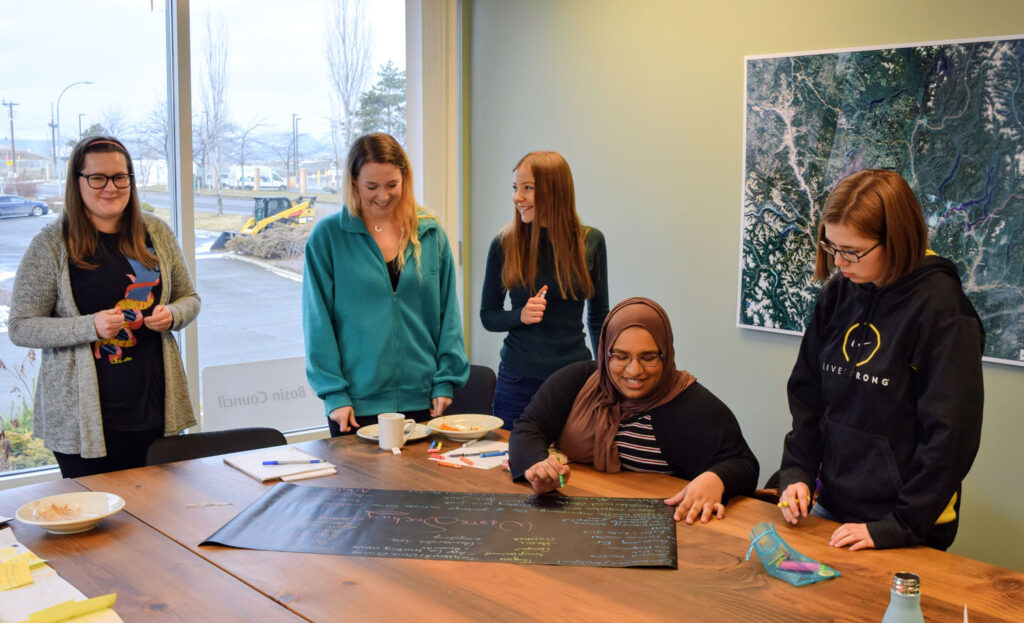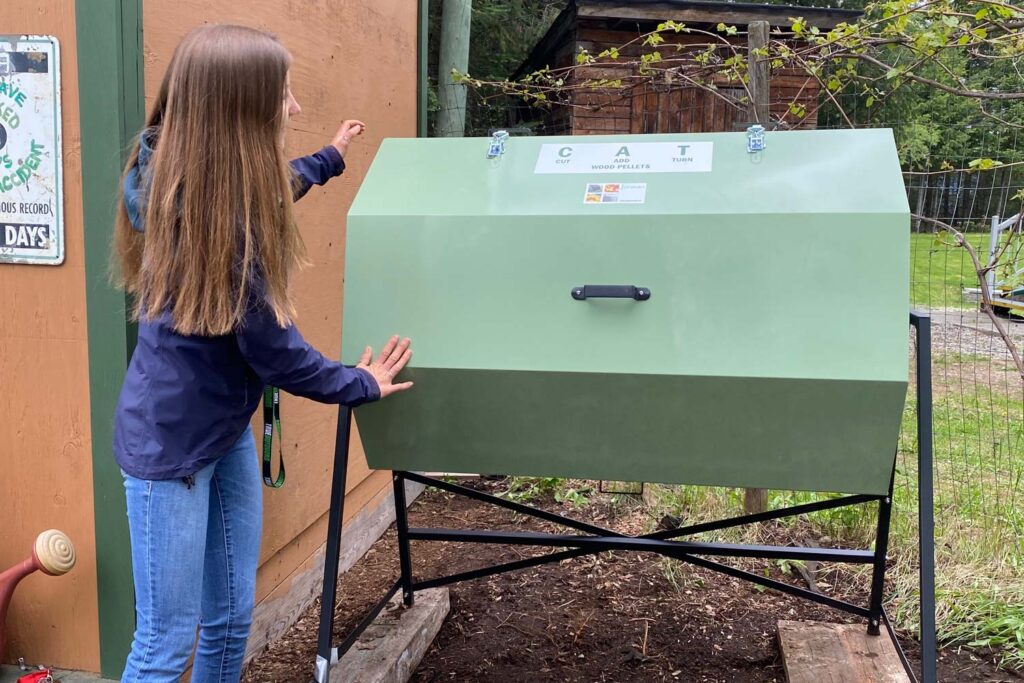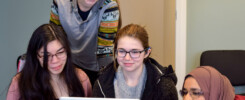When I joined the Co-Creating a Sustainable BC program in the Summer of 2019, I never could have imagined the impact a small group of youth could have on the community. Co-Creating a Sustainable BC is a program through the Fraser Basin Council that brings together youth aged 16-30 to create a community project related to sustainability. When I applied for the program, I had just finished my Bachelor of Education. After being in school for most of my life, I was ready to add some extra-curricular activities to my life. Co-Creating a Sustainable BC caught my eye because I am interested in sustainability and climate change which stems from my background in animal biology and environmental science. I thought it would be a great opportunity to meet like-minded members of my community. I was not disappointed. I was part of the Thompson Cohort that brought together youth from Kamloops and Clearwater. Our Cohort meshed really well together and we all were able to work towards a common goal. Being able to build these connections with fellow members of my community was definitely a highlight of the program.

Another major highlight of the program for me was the ability to create a community project that has made a real difference. Our Cohort decided to focus on community composting for our project. We saw a gap in Kamloops because there is currently no curb-side pick up for compost. We wanted to reduce barriers to composting for people in local neighbourhoods. Our Cohort partnered with Russ Chambers from Joracan to supply large compost bins to local community groups in the Thompson region. We chose the Joracan bins because they are made in Canada, sturdy, easy to use, and bear-resistant. In the Spring of 2020, our Cohort was able to supply bins to Butler Urban Farm, The BIG Little Science Centre, Little Shuswap Lake Indian Band, Full Circle Youth Centre, Yellowhead Community Services, Blue River Community Garden, River Street Community Garden, and Arthur Hatton Elementary School. We were also able to provide 30 home compost pails for each community group to allow users to collect their compost at home and transport it to the Joracan bin location. We had planned to hold educational events for each community group, but the COVID-19 pandemic caused us to pare back that portion of our project. Despite the challenges of working on a community project during a pandemic, our Cohort was happy with the initial results. We were able to deliver all the bins and compost pails just in time for composting season.
Fast forward to February 2021, I reached out to the community groups that received the bins to find out about how they were impacting their community members.
Joanna Hurst, Coordinator of the Food Security Program at Yellowhead Community Services in Clearwater, shared that their two compost bins have been a valuable addition to the community. Food and office paper waste has been diverted from user groups such as municipal offices, a daycare, households, and community kitchen. Joanna was excited to share that the bins were used up until the beginning of 2021 due to the mild winter. The finished compost has been shared amongst community members and used in the community garden.
Kristina John from Skwlax Wellness Centre (Little Shuswap Lake Indian Band) shared that lots of community members are contributing their compost to the bins. The community has extended their orchard and the soil created from the compost bins will be used in the orchard.
Due to COVID-19, the BIG Little Science Centre has put their compost program on pause. Once programming is back to normal at the Centre, Executive Director Gord Steward plans to divert food waste from staff and guests into the compost bin. Any compostable materials from programming would also be diverted into the bin. Once the unit is in operation, there is potential for a display to be created to teach the public about composting.
Paul Denby, who teaches at Arthur Hatton Elementary School, shared that the addition of the Joracan bin has allowed them to increase their composting capacity at the school. They are now able to divert food waste from their entire elementary school. Paul’s class picks up food scraps from each class daily. He is proud to share that they have noticed a big reduction in their garbage and food waste in the school. The final compost product is being used in the school’s garden beds.

Butler Urban Farm (located on the North Shore) is producing locally grown crops to help community groups in need. They are also providing space for community members to grow their own crops. Farm Manager Christopher Torres shared that the compost bin has allowed them to increase their capacity to produce their own high quality fertilizer. This compost has allowed them to maximize yields. The farm produced over 6,000 pounds of organic vegetables last year. These vegetables went directly to the community at no cost to the end users.
Butler Urban Farm has extended their compost program by giving community members an opportunity to bring kitchen scraps for composting. The Farm is also piloting a program with local restaurant Cordo Resto + Bar where kitchen scraps are picked up weekly and used in the compost program. Christopher hopes to continue expanding the program in the future.
This hope of future expansion is being helped by this year’s Thompson Cohort of the Co-Creating a Sustainable BC program. The Thompson Cohort is working with Butler Urban Farm to develop a greenhouse project that would allow the farm to extend their growing season. The Thompson Cohort’s goals include educating the community on how to grow food at home, the importance of local food, and helping youth and low income families access healthy produce and plant starters. The Cohort plans to complete their goals by providing a greenhouse and shelving units for Butler Farms, and providing seeds and plant starters for community members to take home in the Spring. They also plan on developing a community education program to teach community members how to care for the seeds and plant starters provided.
It has been amazing to see the impact that our small group of youth could have on the local community. It is great to see that the current Cohort is building off of our initial success. Their project will undoubtedly have an impact on the local community. I am excited to see what projects future Cohorts bring to the Thompson area!
About author:
Spencer is a Kamloops resident, teacher, and past participant in Co-Creating a Sustainable BC. Co-Creating a Sustainable BC is funded by Employment and Social Development Canada through the Canada Service Corps program.

